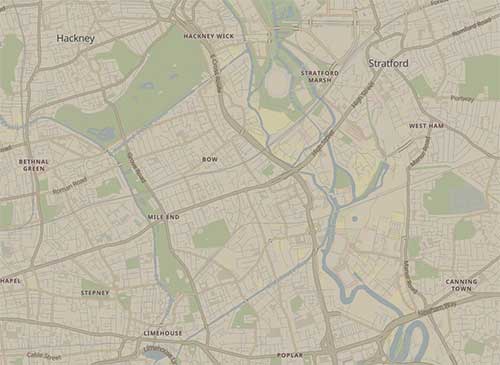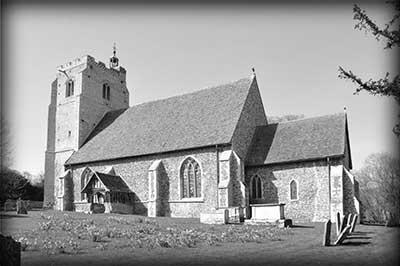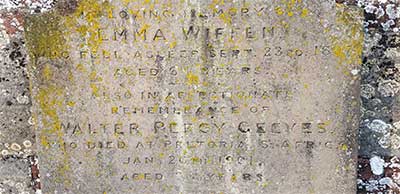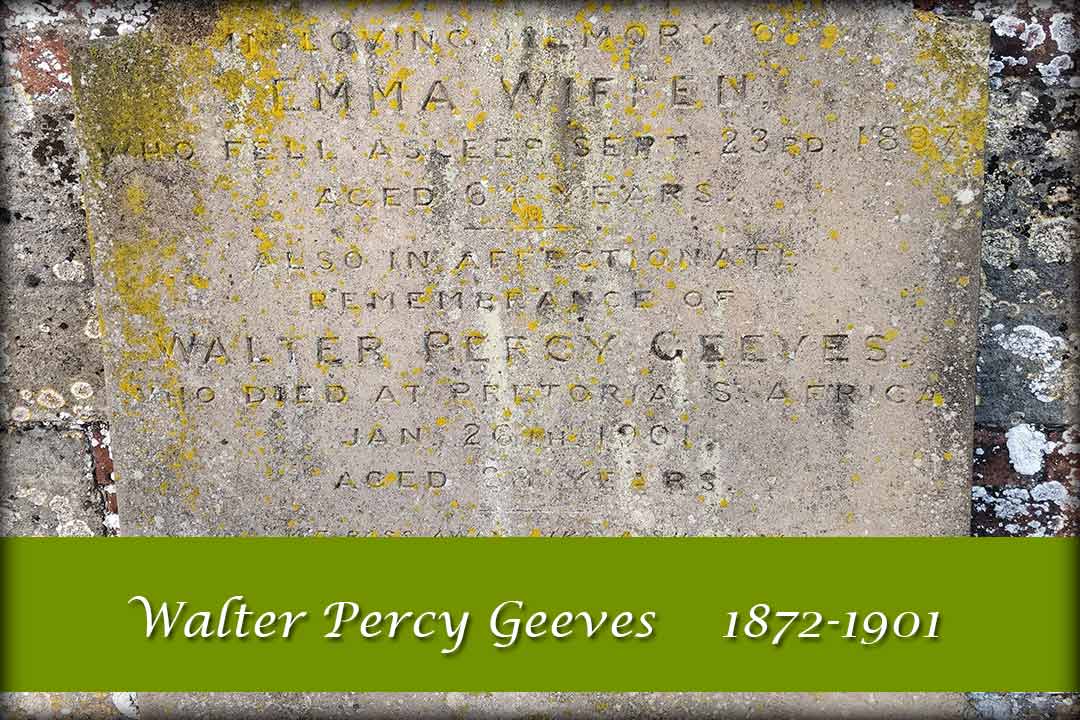Walter was the Father of my Grandmother, Laura Ella Geeves, who was my Dad’s Mother.
A young man, born on Sunday 2nd June 1872, in Mile End, Tower Hamlets, East London.

Mile End was originally a hamlet within the large ancient parish of Stepney, in the Tower division of the Ossulstone hundred of Middlesex. But, in 1855 it became a part of the metropolitan area of London.
You can view his place in the family tree by clicking here.
He was the eldest of 9 children born to his Father, Walter and Mother Clara Anna (Emery) between 1872 and 1890.
Here is what I know of his story.
1872 was the wettest on record. Even in the summer months, up to 150% of the seasonal average rainfall fell in the UK.
But, even with all that gloom, and the temperature at only 53oF (12oC), on the 2nd June, baby Walter Percy was born into the World.
Over the following eighteen years, Walter and his family moved around the area quite a bit. Going from Mile End to Victoria Park. Then from Victoria Park to Dalston in Hackney. They even spent a year in Tottenham, before moving to Leyton in Essex in 1880.
In 1891, aged 19, Walter decided to join the Territorial Regiment of the Army Service Corps. He moved into the Bedfordshire Infantry Barracks in Kempston, Bedfordshire to undergo basic training.
When his basic training was finished, he moved back with his family in West Ham, London.
 Once back at home, he met his future wife, Laura Alice Wiffen. And they were married in Belchamp St. Pauls, Essex on 19th April 1897.
Once back at home, he met his future wife, Laura Alice Wiffen. And they were married in Belchamp St. Pauls, Essex on 19th April 1897.
Sixteen months later, on 14th August 1898, my Nan, Laura Elizabeth (Ella) was born.
Shortly after, their lives were to change dramatically.
The outbreak of the second Boer War in South Africa on 11 Oct 1899, meant that Private Walter Percy Geeves, service number 10267, was called up.
By early 1900, he was on active service in The South African Republic (Transvaal).
In May 1900, the British had secured Johannesburg and they took the Capitol, Pretoria in June.
Within a few months of the battle of Magersfontein in December 1899, the British Army became paralysed by typhoid.
The Royal Army Medical Corps had only been established in 1898 and field hospitals were only designed for up to 100 patients at a time. Within a month almost 6,000 troops had succumbed to the disease.
On 26th January 1901, aged just 28 years old, Walter was one of the casualties.


